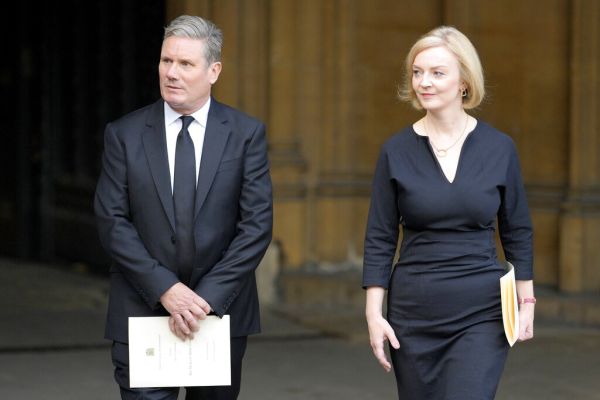Agreement is “one of the greatest success stories in the Middle East for a generation,” says Prime Minister Liz Truss.
By Pesach Benson, United with Israel
On the anniversary of the Abraham Accords, British Prime Minister Liz Truss and Labour Party leader Keir Starmer called on more Arab states to join the agreement, the Jewish Chronicle reported on Thursday.
The PM and opposition joined the Foreign Ministers of Israel, the United Arab Emirates and Morocco in marking the second anniversary of the signing of the accords.
“The UK is proud to be a steadfast supporter of the historic Abraham Accords, one of the greatest success stories in the Middle East for a generation,” said Truss, who became Prime Minister on Sept. 6.
“The introduction of direct flights has led to people-to-people links, ensuring the Accords mature into deep and abiding friendships between different societies and cultures.
“And the Accords have also facilitated increased cooperation on sustainability to address mutual climate changes challenges. Security remains a key foundational element underpinning the Accords.”
Starmer praised the agreement, calling it, “Undoubtably a victory for diplomacy over conflict and an example for the rest of the world to follow.”
Since signing the White House signing ceremony in September 2020, Israel, Morocco, Bahrain and the UAE “have produced new economic opportunities, new investment and have encouraged innovation and collaboration where previously there was none. They have provided opportunities for cultural exchange and allowed industries and companies to work closely together to develop new medicines, research and technology,” he said.
Speculation on which countries might be next to make peace with Israel has at times centered on Indonesia, Mauritania, Libya, Oman and Saudi Arabia.
The U.S. administration of President Donald Trump sought to bring Indonesia and Mauritania into the agreement but those efforts didn’t advance far enough by the end of his presidency.
Sudan joined the accords in January 2021, but has made no moves to normalize ties, such as an exchange of embassies.
At the time of the signing, Sudan was led jointly by civilian Prime Minister Abdallah Hamdok and Gen. Abdel-Fattah Burhan. But in October, Burham seized power in a military coup. Israel has remained silent on the coup.
Burhan, the country’s de-facto military leader has openly praised Israeli-Sudanese security and intelligence cooperation.
